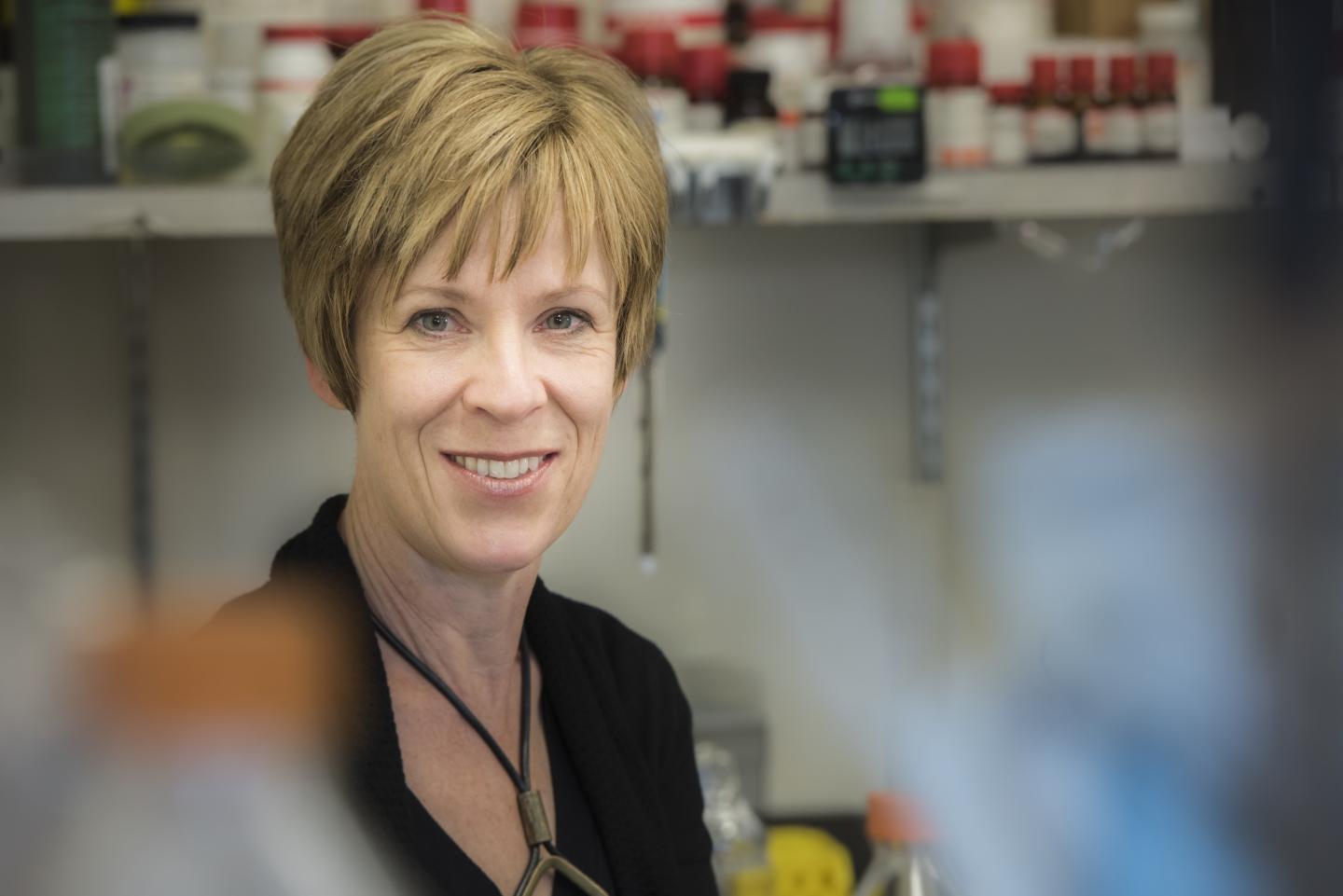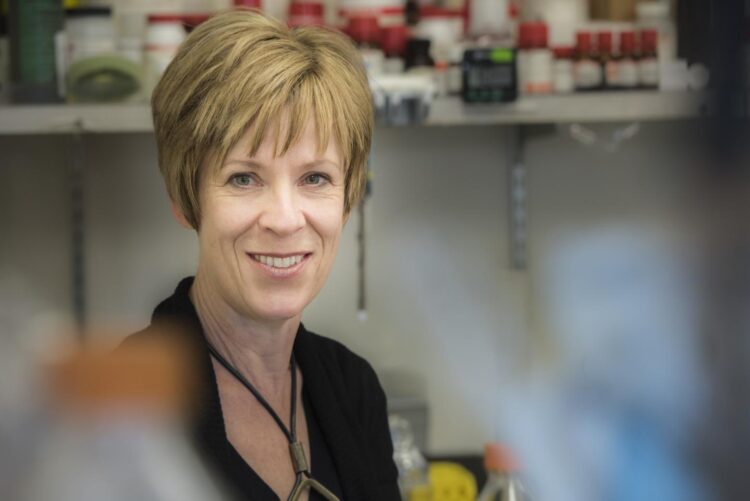Collaboration co-led by Keck School of Medicine of USC aims for safe, effective treatment inspired by rare cases of HIV cure

Credit: Richard Carrasco
An HIV research program led by scientists at USC and the Fred Hutchinson Cancer Research Center has received a five-year, $14.6 million grant from the National Institutes of Health. The team is advancing a gene therapy approach to control the virus without the need for daily medicines.
The program’s co-directors are Paula Cannon, Distinguished Professor of Molecular Microbiology and Immunology at the Keck School of Medicine of USC, and Hans-Peter Kiem, the Stephanus Family Endowed Chair for Cell and Gene Therapy at Fred Hutch. Other key partners are David Scadden, a professor at Harvard University, and the biotechnology company Magenta Therapeutics.
The NIH award will support preclinical studies that combine gene editing against HIV with technologies for safer and more effective hematopoietic stem cell transplants. Such transplants, also known as bone marrow transplants, are currently used for severe blood cancers. They renew a patient’s immune system, which can be damaged by cancer therapies, by infusing healthy donor blood stem cells that can grow into any type of blood or immune cell.
The researchers’ goal is to build a therapy that prepares patients for a stem cell transplantation using their own cells with little to no toxicity, engineers their own stem cells to fight HIV and stimulates those cells to quickly produce new and engineered immune cells once they’re reintroduced into the patient.
“This grant funds a team with an overarching goal of developing what our perfect HIV gene therapy would look like,” Cannon said. “All of these pieces could happen separately, but the fact that the NIH has funded us as a team means that the sum will be so much bigger than the parts.”
Halting HIV without daily drugs
About 38 million people worldwide are living with HIV, the virus that causes AIDS. HIV is manageable with daily antiretroviral drugs, but the research team seeks a more durable solution.
Their strategy is inspired by the three cases where patients seem to have been cured of HIV. All had aggressive leukemia and received blood stem cell transplants from donors who also carried a mutation that confers immunity to HIV. The mutation was in the CCR5 gene, which encodes a receptor that HIV uses to infect immune cells and is present in about 1 percent of the population.
Timothy Ray Brown, famously nicknamed “the Berlin patient,” received such a transplant in 2007; he has been off antiretroviral drugs since then, and the virus remains undetectable in his system. In recent years, patients in London and Dusseldorf have shown similar results.
“I think of the Berlin patient as proof of principle that replacing the immune system with one that’s HIV-resistant by removing CCR5 is a possible way to treat somebody,” Cannon said.
However, the rigors of the blood stem cell transplant process, combined with the difficulty in finding tissue-matched CCR5-negative donors, make it highly unlikely that this will provide more than a very rare treatment.
‘Three for one’ gene therapy
The research team will tackle these two major problems. First, to get around the lack of CCR5-negative donors, Cannon has already helped pioneer the use of gene editing to remove CCR5 from a patient’s own stem cells. This is now an investigational treatment for HIV in a clinical trial at City of Hope in Duarte, California.
She will now combine CCR5 disruption with additional genetic changes, so that the progeny of engineered stem cells will release antibodies and antibody-like molecules that block HIV.
“Our engineered cells will be good neighbors,” Cannon said. “They secrete these protective molecules so that other cells, even if they aren’t engineered to be CCR5-negative, have some chance of being protected.”
Meanwhile, Kiem’s group is providing a third approach by adapting an emerging cancer treatment called CAR T cell therapy. This re-engineers T cells of the immune system with chimeric antigen receptors (CARs), which are customized to recognize cancer cells.
In this project, Kiem and colleagues will create stem cells whose T cell descendants can instead hunt down HIV-infected cells.
A gentler blood stem cell transplant
The grant also supports two other components that relate to the blood stem cell transplant.
Magenta Therapeutics is developing less-toxic protocols for “conditioning”–preparing a patient’s bone marrow to receive a transplant. Traditionally, mild chemotherapy or radiotherapy is needed to make room for newly infused stem cells and to help them re-engraft.
The company is instead using antibody-drug conjugates to deliver this conditioning much more narrowly and to reduce the side effects that occur with systemic chemo or radiation.
Meanwhile, Scadden and his team are addressing another drawback of stem cell transplants and conditioning, the delay before infused stem cells generate new immune cells in sufficient numbers. In cancer patients, this delay leaves them highly susceptible to infection.
Scadden is approaching this using an injectable gel that biochemically resembles the bone marrow environment, to quickly repopulate the immune system with HIV-fighting cells.
With success, the team’s research may free HIV patients from the need for daily medication — and the expense and potential side effects that come with it. Their work may also improve other therapies based on blood stem cells, for conditions such as cancer, sickle cell disease and autoimmune disorders.
“A home run would be that we completely cure people of HIV,” Cannon said. “What I’d be fine with is the idea that somebody no longer needs to take anti-HIV drugs every day because their immune system is keeping the virus under control, so that it no longer causes health problems and, importantly, they can’t transmit it to anybody else.”
###
Media Contact
Laura LeBlanc
[email protected]





